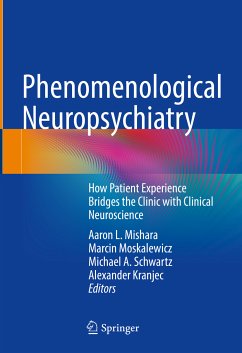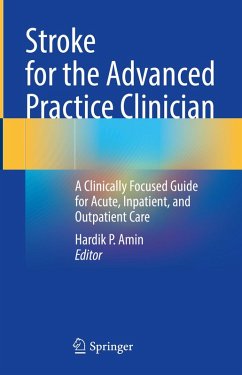
The Clinician in the Psychiatric Diagnostic Process (eBook, PDF)
Versandkostenfrei!
Sofort per Download lieferbar
72,95 €
inkl. MwSt.
Weitere Ausgaben:

PAYBACK Punkte
36 °P sammeln!
The vast majority of mental health clinicians and researchers rely on diagnostic systems based on operational criteria. However, in their everyday practice, many clinicians also pay attention to their own feelings or intuitions about the patient. For an even greater number of clinicians, this process may occur inadvertently. Scholars from various fields are increasingly stressing the importance of complementing the emphasis on operational criteria with thoughtful attention to the subjective and intersubjective elements involved in a thorough psychopathological evaluation. This book aims at cap...
The vast majority of mental health clinicians and researchers rely on diagnostic systems based on operational criteria. However, in their everyday practice, many clinicians also pay attention to their own feelings or intuitions about the patient. For an even greater number of clinicians, this process may occur inadvertently. Scholars from various fields are increasingly stressing the importance of complementing the emphasis on operational criteria with thoughtful attention to the subjective and intersubjective elements involved in a thorough psychopathological evaluation.
This book aims at capturing the essence, implications and full potential of the clinician's subjective experience in the diagnosis and treatment of mental disorders. It gathers contributions from several different disciplines, such as phenomenology, neuroscience, the cognitive sciences, and psychoanalysis. It also presents the development, validation, and clinical application of a psychometric instrument thatreliably investigates the clinician's feelings, thoughts, and perceptions related to the clinical encounter.
This book aims at capturing the essence, implications and full potential of the clinician's subjective experience in the diagnosis and treatment of mental disorders. It gathers contributions from several different disciplines, such as phenomenology, neuroscience, the cognitive sciences, and psychoanalysis. It also presents the development, validation, and clinical application of a psychometric instrument thatreliably investigates the clinician's feelings, thoughts, and perceptions related to the clinical encounter.
Dieser Download kann aus rechtlichen Gründen nur mit Rechnungsadresse in A, B, BG, CY, CZ, D, DK, EW, E, FIN, F, GR, HR, H, IRL, I, LT, L, LR, M, NL, PL, P, R, S, SLO, SK ausgeliefert werden.












